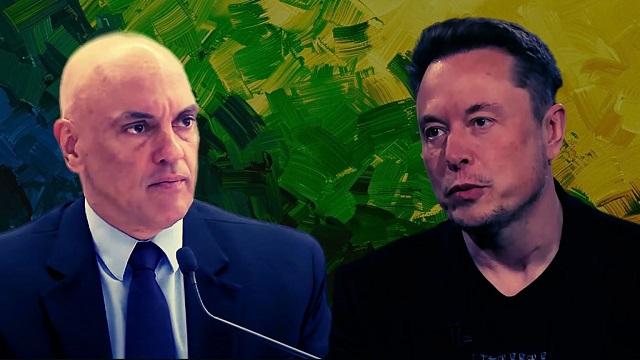Elon Musk’s social media platform, X, is now clear to resume its online activities in Brazil with the settlement of one final penalty according to an announcement made last Friday by Brazil’s controversial justice official, Alexandre de Moraes. The supreme justice authority in the country, known as the Federal Supreme Court (STF), had previously sanctioned a nationwide suspension of X in late August, a decree that was sustained by a judicial panel on September 2 following X’s noncompliance with the court’s orders.
The controversy originated in the spring when STF’s Minister de Moraes initiated an investigation into Musk and X after the platform refused to heed its censorship demands.
Musk was bold in his defiance of the court’s requests to shut down selected accounts in Brazil. He proceeded to critique de Moraes publicly, labeling him a “criminal” and advocating for the cessation of US foreign aid to Brazil.
Nonetheless, this incident marks a turning point in the ordeal. Earlier this month, X submitted official documentation to Brazil’s supreme court indicating their compliance with the court’s instructions, a stance diverging from their previous rebellious approach.
However, as reported by Brazil’s G1 Globo, X still holds the responsibility of settling a new fine of 10 million reals (approximately $2 million) to close the chapter on two further days of noncompliance with court orders. Rachel de Oliveira, X’s legal representative in Brazil, is also obligated to settle a 300,000 real penalty.
The situation escalated in mid-August, when Musk opted to shutter X’s Brazilian offices, thereby leaving the company devoid of a mandated legal representative in the country for its continued operations. As a consequence, the absence of this representation led the STF to initiate restrictions on the organization’s business assets within Brazil, affecting both X and Musk’s additional venture, Starlink.
Influential individuals in Brazil, such as former President Jair Bolsonaro, have been heavily critical of STF’s measures to clamp down on online so-called “hate speech” and “misinformation.” Musk himself has called for retribution against President Luiz Inácio “Lula” da Silv and Moraes, the latter of whom was a staunch advocate of these federal regulations.


















